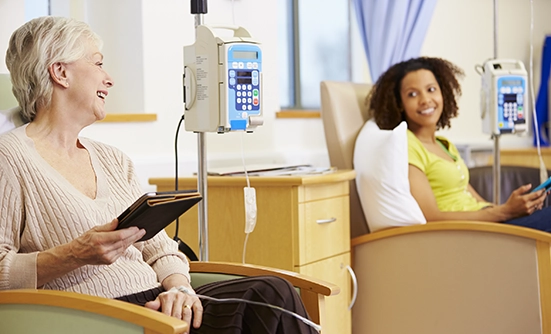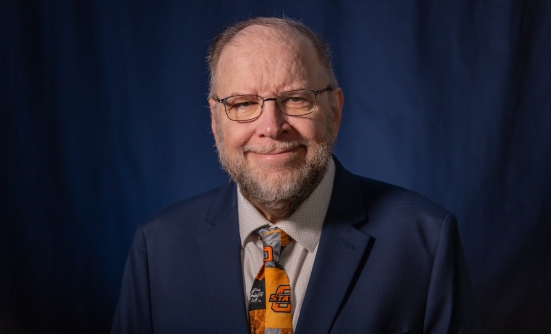The first few days after my breast cancer diagnosis in 2007, I realized it was impossible to keep up with all the phone calls, e-mails, and cards sent by well-wishers. To help streamline the communication, I started a blog on www.CaringBridge.org. It became the best way to stay in touch with well-wishers without having to repeat the same story.
“Camp Chemo”
Eventually, I wrote about a clinic-mandated “chemo class” I needed to attend before starting chemotherapy. I wrote in my blog about how I imagined the class: “What are we going to do there, sing songs and roast marshmallows around a campfire?” Jokingly, I started to call the class “Camp Chemo,” and even printed up T-shirts for family and friends. At Camp Chemo, the nurse explained the side effects, which made me realize chemo is no joking matter. Attending the class was a much more sobering experience than I expected.
Chemo also turned out to be worse than I expected. Each of the 6 rounds landed me in bed for 5 days, missing valuable time with my husband and our kids, then ages 6 and 1. Eventually, I was declared cured, with a 70% chance of surviving the next 5 years cancer-free.
At that point, I closed my Caring Bridge blog, saying, “While there will be tests, scans, and probably some scares in the future, the most intense part of this journey is in the rearview mirror. It’s amazing how much easier life is without another test result, surgery, or chemo around the corner.”
When the Cancer Spreads
In 2012, I began experiencing hip pain that only got worse, despite physical therapy, icing, cortisone shots, and narcotic pain killers. Late one night, I received a phone call from my doctor informing me the cancer had metastasized (spread) to my hips, pelvis, femur, spine, scapula, and ribs.
Suddenly, I was thrown back to Camp Chemo—this time forever. One of the first things I did was start my Caring Bridge blog again. To survive, chemo will be my constant companion. As I came to terms with this new reality, the camp metaphor became less of a joke and more of a helpful guide. Now it helps me to assess my emotional state based on which camp I’m in today.
I Can Control My Reaction
Sometimes I feel I’m at overnight camp, forced by well-meaning doctors to endure treatments; I’m homesick and want to return to the familiar. Yet, my fellow campers at in-person and online support groups provide a welcome camaraderie.
Other days I feel like I’m at boot camp, being drilled constantly with treatments designed to test my very will to live. Living with metastatic cancer, I know I can’t leave, but I know these treatments are designed to make me stronger—and they do.
At times, life feels happily like a day camp and more of a retreat, where I learn about cancer, ways to cope,and sometimes even get to help my fellow campers with their troubles. We’re all learning new things by day, but we get to return to the comfort of home each evening.
Asking myself “which camp am I in today?” helps me gauge my emotional state and provides perspective that no matter how I feel today, it will change over time. Although I can’t control the situation I’m in, I do have choices in how to react to my circumstances.
From a Blog to a Book
Living with metastatic breast cancer has created an urgency in my life to do the things that are most important. This helped to inform my decision to turn my blog into a book, Camp Chemo: Postcards Home from Metastatic Breast Cancer. During my stage III experience, everyone could relate to the surgery, chemotherapy, and radiation treatment plan.
However, once the cancer metastasized, it was difficult for people to understand why the cancer couldn’t be removed, and why I’d need chemo forever. It was the lack of understanding of metastatic breast cancer that provided the final push I needed to publish my own first-person account of living with the disease.
Even though writing a book isn’t for everyone, it’s important for everyone touched by cancer to tell our stories to improve others’ understanding of what it’s like to live with cancer. As survival becomes more commonplace, we need to continue telling the truth about cancer.
My truth is to share with my readers the rigorous treatment, emotional difficulties, and financial sacrifices that go along with this disease. As you cope with cancer as a patient, caregiver, or practitioner, my wish is for you to share your truth with those who need to better understand what it’s like to live with this disease.















